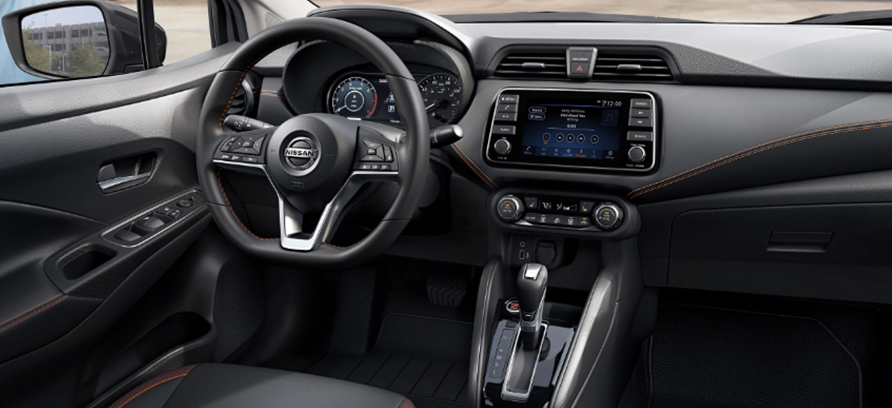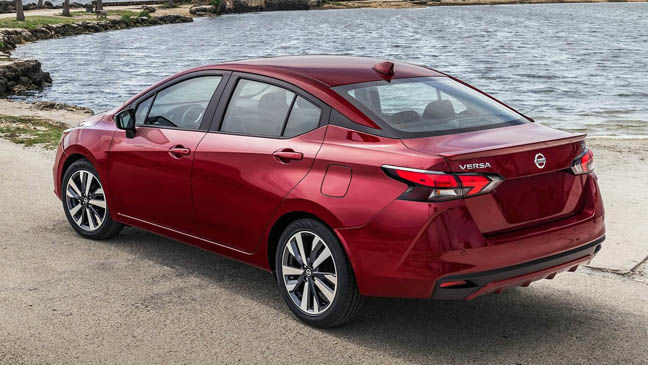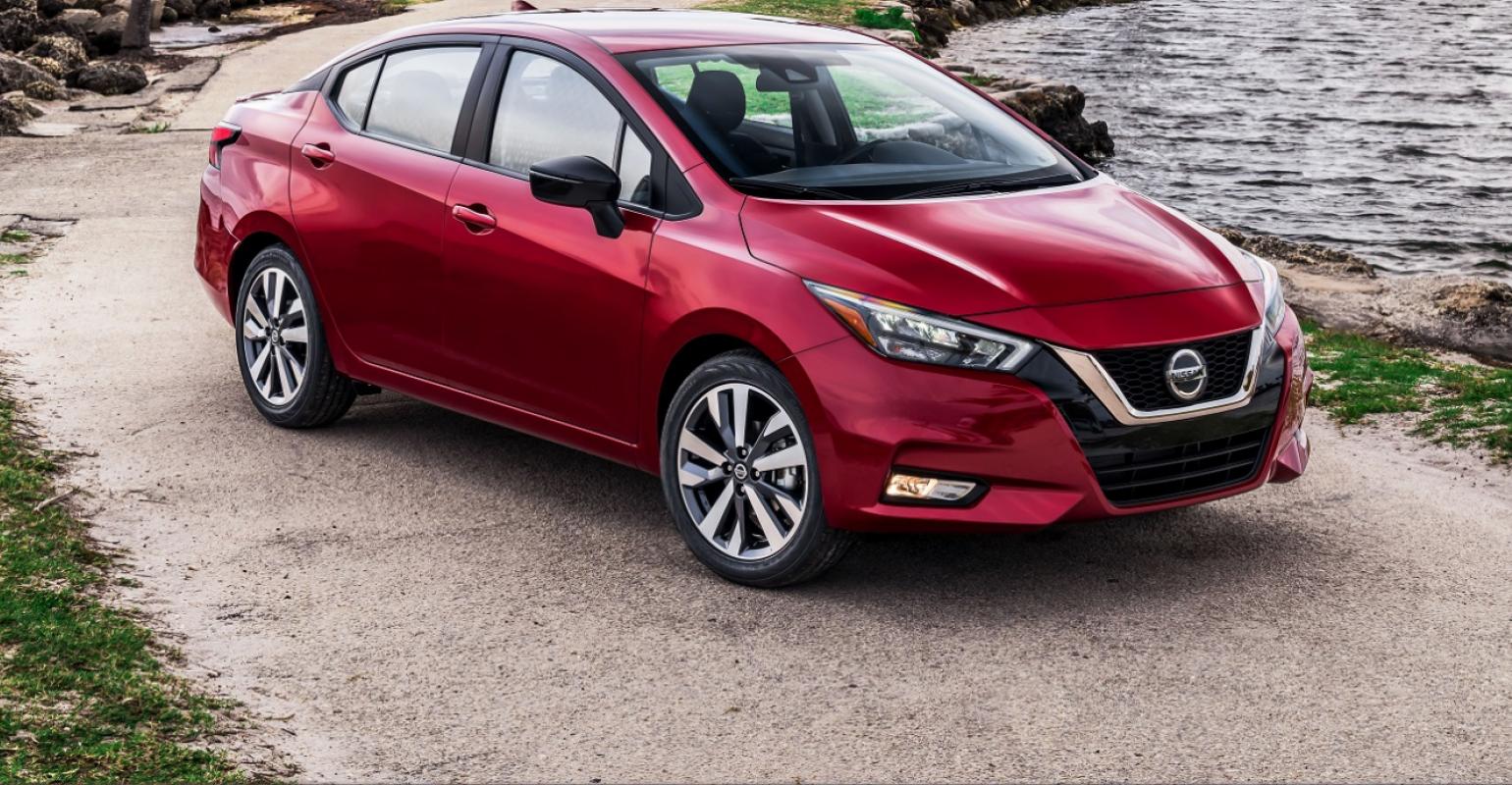By Shari Prymak
Before SUVs were all the rage, affordable subcompact cars accounted for a significant share of the Canadian car market. Small cars such as Toyota Yaris, Honda Fit, and Hyundai Accent proved popular with value shoppers seeking economical transportation. Unfortunately the modest price difference between the subcompact class and compact class models, combined with the increasing popularity of crossovers, ultimately led to the end of most of these models. Nissan seems to think that there is still a market for this type of car, and the latest Versa sedan is proof of that.
One of the most noteworthy highlights about the Versa is that it is actually not that small. Nissan wants you to think of it as a more sophisticated alternative to the few remaining subcompacts on the market such as the Chevrolet Spark and Kia Rio. Compared to either of those models, the Versa feels like a far more substantial car with a similar look to the larger Sentra and Altima sedans. Given its large footprint for a subcompact, many will likely want to cross shop it with the popular compacts cars such as the Hyundai Elantra or Kia Forte.

The Versa may be considered a small car by modern standards, but it offers a surprising amount of interior space. The rear seats are quite spacious with plenty of room for occupants to sit comfortably. The seatbacks can also be folded down allowing access to the generously sized trunk. Up front you’ll find Nissan’s incredibly comfortably Zero Gravity seats plus a wide range of features and connectivity options. Base trims include three USB ports plus an easy to use 7 inch touchscreen infotainment system, but you’ll have to move up to the SV or SR models to get Apple CarPlay and Android Auto capability.
The engine is a 1.6L 4-cylinder unit which produces 122 horsepower and 116 lb-ft of torque. Though humble as those figures may sound, the engine provides more than adequate power around city speeds. The only time it feels laboured is when attempting quick merging or passing maneuvers at highway speeds. Base models come with a 5-speed manual gearbox while all other trims receive a continuously variable automatic transmission. The CVT performs seamlessly and helps the Versa achieve exceptional fuel efficiency. It’s rated for 7.4L/100km in the city and 5.9L/100km on the highway, which is quite impressive.
The Versa provides a rather comfortable, solid, and drama-free driving experience, which is probably what Nissan is aiming for. In a world gone mostly to oversized SUVs, driving such a maneuverable, modestly-sized car feels like a breath of fresh air. Adding to the Versa’s level of comfort and ease of use are a number of active safety features which come standard as part of Nissan’s 360 safety shield. This includes forward collision warning with front and rear emergency braking, lane departure warning, and high beam assist. The Versa is one of the least expensive cars which includes these valuable safety features as standard equipment.

The Versa is available in three grades with a starting MSRP of $16,498 in manual form or $17,998 for the S CVT. For an MSRP of $19,498, the mid-range SV model adds heated seats, automatic climate control, 16 inch alloy wheels, blind-spot monitoring with rear cross traffic alert, and intelligent driver alertness monitor to the S model’s generous standard features list. The additions to the top $20,998 SR trim are largely cosmetic, meaning the SV trim represents the best value in the lineup.
Looking back now, it is not difficult to understand why so many subcompact cars failed to survive. Most had too little to offer and the pricing was just far too close to the larger compact cars that were available. The Versa solves most of these issues thanks to its larger size, spacious interior and lengthy list of advanced features. The value it offers at its price point is just about unbeatable. Although the pricing does come close to the lower trims of a few popular compact cars such as the Kia Forte, Hyundai Elantra, and even Nissan’s own Sentra, it doesn’t really sacrifice anything significant when compared to those models. In fact, for those who just prefer a slightly smaller car, the Versa is an ideal option.

